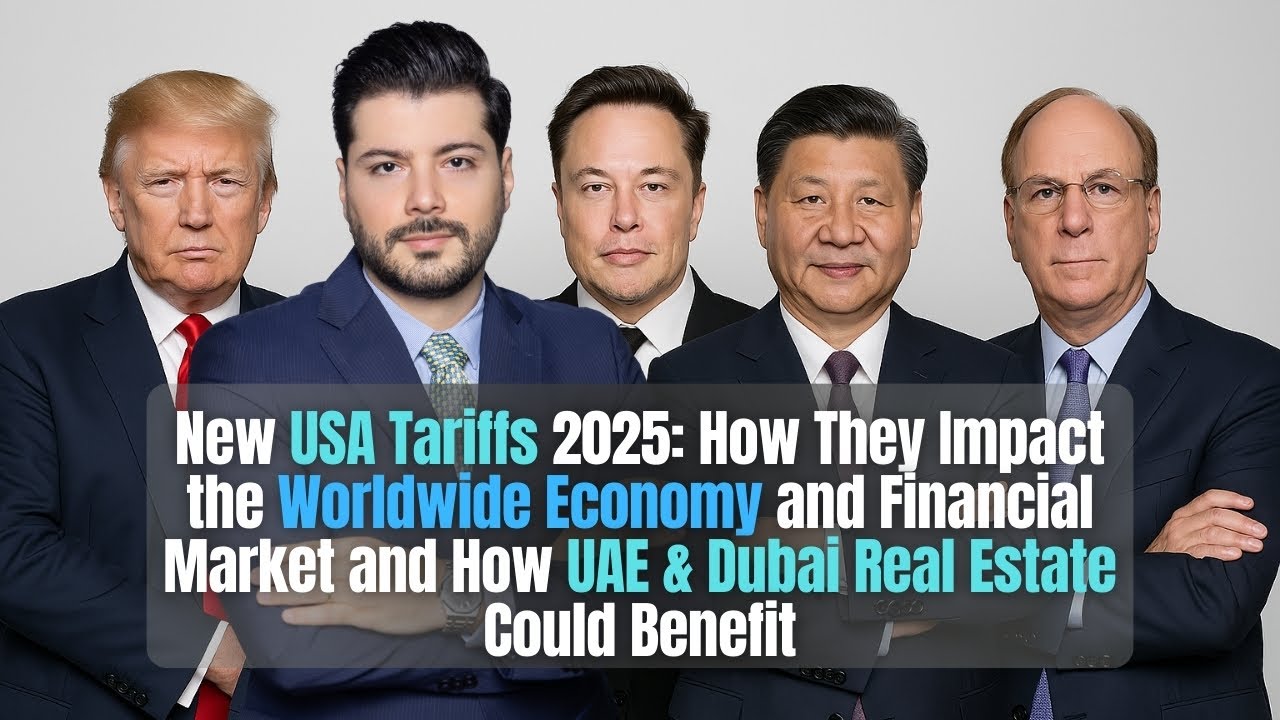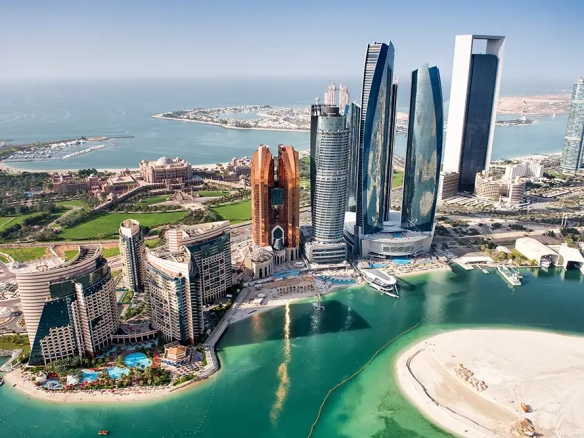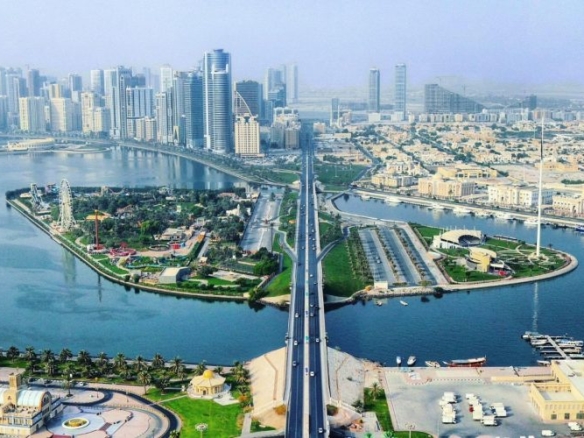Let’s dive into the dynamics of the global financial markets, particularly focusing on the effects of new tariffs introduced by the USA and their impact on the UAE, especially within the real estate sector.
Global Impact of USA’s New Tariffs The recent announcement by the USA regarding new tariffs is set to reshape international trade. These tariffs require exporters to adhere to a new cost structure, inevitably raising the final price of numerous products. This not only affects imported goods but also domestically produced items in the USA, as they often include foreign components. Consequently, this leads to an overall price increase for many products in the U.S. market.
Economic Repercussions The USA, being a major global economic powerhouse and a key player in international trade, plays a pivotal role in shaping economic trends. With the increase in product costs, consumer spending is likely to decline, leading to reduced demand. This downturn forces companies to slash costs, often by cutting down on their workforce, thereby affecting their profitability and overall market performance. This scenario typically results in a dip in company stock prices as investors seek refuge in safer assets or opt to retain cash.
Why Real Estate? During such turbulent financial times, real estate emerges as a bastion of stability. Following the lead of investment giants like BlackRock, whose CEO has advocated for diversifying into private assets like real estate, the sector is witnessing increased interest. Real estate is traditionally viewed as a safe and stable investment, less susceptible to the erratic swings seen in the broader market.
The UAE Advantage Among global real estate markets, the UAE stands out for several compelling reasons:
- No income tax: This provides a significant financial advantage to both businesses and individual investors.
- Stable currency exchange rate: The Dirham is pegged to the Dollar at approximately 3.67, ensuring stability.
- Favorable tariff conditions: The UAE’s strategic position and tariff policies make it an attractive hub for global trade.
A Strategic Move Consider a scenario where a company imports a product like a Z45X DN100 valve, costing $63 from China. If this product is exported directly to the USA, a 25% tariff increases its price to about $87. However, if the same product is first brought to a UAE Free Zone, undergoes light assembly, receives a UAE Certificate of Origin, and is then re-exported to the USA with a reduced tariff of 10%, the final price drops to approximately $80. This results in significant savings, making the UAE an attractive location for such logistical maneuvers.
Broader Implications This tariff adjustment is likely to spur more businesses to adopt a UAE-based strategy, leading to:
- Expansion of manufacturing facilities within the region.
- Increase in job opportunities as new factories and operations are established.
- Boost in commercial real estate demand, including spaces like warehouses and offices.
- Rise in residential property demand to accommodate the growing workforce.
In conclusion, while the new tariffs present challenges, they also offer unique opportunities for regions like the UAE, which provide favorable conditions for business operations and real estate investments, ensuring high liquidity and stability in what can be a volatile global market.





Join The Discussion